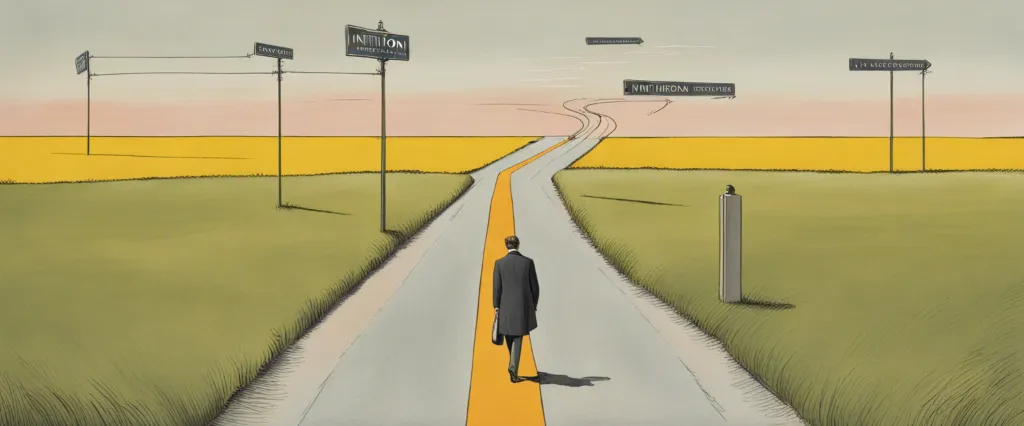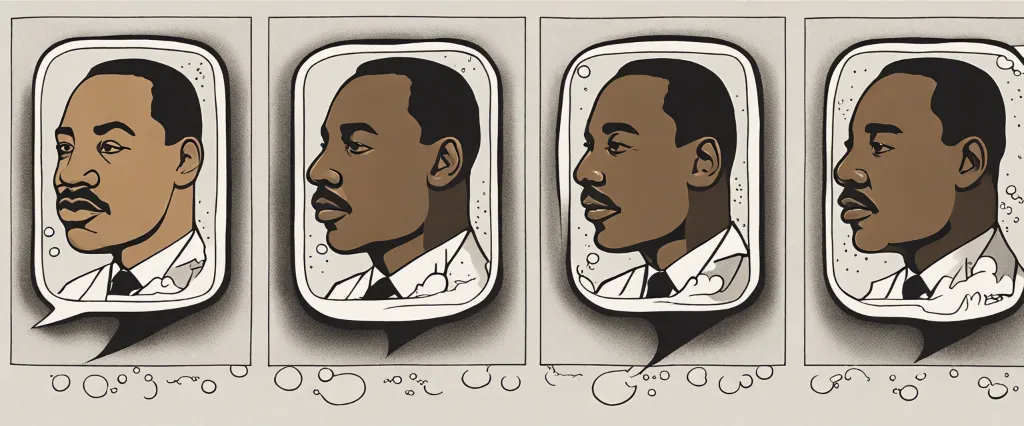
In the realm of intellectual discourse and the pursuit of social change, numerous books have illuminated the complexities of our world and inspired individuals to challenge the status quo. Cognitive Surplus by Clay Shirky and Why We Can’t Wait by Martin Luther King Jr. are two remarkable works that explore different dimensions of human potential and the power of collective action. While separated by several decades and divergent subject matter, these books share a common thread in their exploration of the human desire for progress and the transformative impact it can have on society. As we delve into these pages, we will navigate the philosophical underpinnings, historical context, and the rhetorical techniques employed by Shirky and King to understand how they harness the concept of cognitive surplus to mobilize individuals toward a collective vision. Through this comparative study, we will examine the ways in which both authors challenge societal norms, call for action, and inspire readers to utilize their cognitive surplus for the betterment of their communities, ultimately shedding light on the power of shared ideas to reshape the world in profound ways.
Brief Summary of Two Books
Cognitive Surplus by Clay Shirky
Cognitive Surplus by Clay Shirky examines the potential of the internet and digital technology to tap into the vast reserves of free time and intellectual capacity that individuals possess. The book argues that there has been a historical shift in how people spend their leisure time, from passive activities such as watching television to active participation in online communities and creative endeavors.
Shirky begins by discussing the concept of cognitive surplus, which refers to the collective intelligence and ability of people when they are not engaged in work or other obligations. He highlights the immense amount of spare time that individuals have and how it could be used for more productive purposes. The rise of the internet and social media platforms has provided an outlet for people to channel their cognitive surplus into collaborative projects and knowledge-sharing initiatives.
The book explores numerous examples of how individuals, motivated by their own interests and passions, are using their spare time to create content, solve complex problems, and contribute to a collective betterment. From online crowdsourcing and open-source collaborations to citizen journalism and Wikipedia, Shirky provides a comprehensive analysis of the diverse ways in which cognitive surplus is being harnessed for the benefit of society.
Additionally, Shirky delves into the social and economic impacts of cognitive surplus, including the potential for increased civic engagement and the transformation of traditional industries. He argues that the mobilization of cognitive surplus can lead to profound changes in the way we work, learn, and interact with one another.
Overall, Cognitive Surplus presents a compelling case for the transformative power of the internet and the potential to harness the collective intelligence of individuals in order to address pressing social issues and create a more participatory and collaborative society.
Why We Cant Wait by Martin Luther King Jr
“Why We Can’t Wait” is a 1964 book written by Martin Luther King Jr. It focuses on the Civil Rights Movement in the United States and specifically highlights the events and accomplishments of the movement in Birmingham, Alabama, in 1963. The book aims to highlight the urgency of the struggle for racial equality and emphasize the need for immediate action.
King provides historical context by exploring the long-standing racial discrimination and segregation faced by African Americans. He discusses the nonviolent protests and direct action strategies employed by the Civil Rights Movement and reflects on their effectiveness in bringing about change.
The book delves into the Birmingham campaign, recounting the events surrounding the protests, including the arrests of activists and the use of violent tactics by law enforcement against peaceful demonstrators. King vividly describes the harsh conditions faced by African Americans in Birmingham and the collective struggle for equality.
Additionally, King explores the concept of “white moderates” and their role in hindering progress towards racial equality. He criticizes those who claim to support the cause of Civil Rights but are unwilling to take meaningful action or challenge the status quo. King argues that true change must come from a sense of urgency and a willingness to confront the unjust system.
“Why We Can’t Wait” serves as a call to action, urging readers to actively work towards racial justice and equality. It emphasizes the importance of seizing the moment and not waiting for gradual change. King’s book continues to be relevant in its message and serves as an important historical document chronicling the struggle for Civil Rights in the United States.
Comparison between Two Books

Similarities in Social Change
Both “Cognitive Surplus” by Clay Shirky and “Why We Can’t Wait” by Martin Luther King Jr. discuss the concept of social change, albeit from different perspectives and contexts.
1. Shared Responsibility: Both books emphasize the idea that social change requires collective action and the active participation of individuals. They argue that individuals have the power to contribute to positive change in society and that waiting for others to take action is not a viable solution.
2. Mobilizing Technology: Shirky’s “Cognitive Surplus” explores the potential of technology in mobilizing collective intelligence for social change. King’s “Why We Can’t Wait” predates modern technology, but it emphasizes the role of media, particularly television, in spreading awareness and mobilizing support for social movements.
3. Grassroots Activism: King and Shirky highlight the importance of grassroots activism and bottom-up approaches to social change. They argue that real change happens when ordinary individuals take action and organize themselves rather than relying solely on institutional power or authority.
4. Overcoming Apathy and Complacency: Both books confront the issue of apathy and complacency in society regarding social injustices. They call for individuals to recognize the urgency of addressing these problems and to take personal responsibility for creating a more equitable and just society.
5. Power of Nonviolent Resistance: King’s “Why We Can’t Wait” focuses extensively on the power and effectiveness of nonviolent resistance in achieving social change. Shirky also briefly touches upon the role of online networks and digital activism in nonviolent movements, highlighting their ability to facilitate coordination and mobilization.
While the books differ in their specific arguments and contexts, they converge in their beliefs that change is possible through collective action, bottom-up approaches, and the power of individuals to mobilize and create a more just society.
Divergences in Social Change
Cognitive Surplus by Clay Shirky and Why We Can’t Wait by Martin Luther King Jr. both explore the concept of social change and the role that individuals can play in making a difference. However, these books diverge in their perspective on the process of social change and the primary agent of change.
In Cognitive Surplus, Shirky argues that the rise of digital technologies and the surplus of free time available to individuals can be harnessed to collaboratively work towards social change. He emphasizes the power of collective action facilitated by online platforms, demonstrating how people can pool their cognitive surplus to address societal challenges. Shirky explores examples of online collaboration such as Wikipedia and crowd-sourced solutions to problems, highlighting the potential for ordinary citizens to make significant contributions to society. His focus is on empowering individuals to take action using digital tools and leveraging collective intelligence for social change.
On the other hand, Why We Can’t Wait by Martin Luther King Jr. takes a more traditional approach to social change, centering the narrative on the Civil Rights Movement. King emphasizes the importance of direct action, nonviolent resistance, and political mobilization in the fight against racial injustice. He argues that change cannot be achieved through passive waiting or gradual reform, but rather through active engagement and civil disobedience. King reflects on the power of collective struggle, highlighting the significance of organized protests, sit-ins, and marches. His book presents a deeply personal account of the Civil Rights Movement and the pivotal moments that led to significant societal transformations.
The key divergence between these books lies in their perspectives on the role of technology and the primary agent of social change. Shirky’s Cognitive Surplus suggests that digital tools and collective intelligence can empower individuals to drive change, whereas King’s Why We Can’t Wait focuses on the power of grassroots activism, direct action, and political mobilization as the means to effect social change. While Shirky emphasizes the potential of online collaboration, King highlights the necessity of physical presence and personal sacrifices in the pursuit of justice.
In conclusion, Cognitive Surplus and Why We Can’t Wait approach social change from different angles, with Shirky focusing on the power of digital collaboration and Shirkey focusing on grassroots activism and direct action. However, both books acknowledge the need for individuals to join forces and take action in order to achieve meaningful societal transformations.

Conclusion
Determining which book is more worthy of reading is subjective and dependent on individual preferences and interests.
Cognitive Surplus by Clay Shirky offers insights into the potential of collaboration and the internet in transforming society. Shirky explores how individuals can use their free time and creativity to contribute to the common good, through examples and case studies. This book is recommended for readers interested in technology, social studies, and the impact of digital media on society.
On the other hand, Why We Can’t Wait by Martin Luther King Jr. is a significant historical document that provides an intimate and personal account of the Civil Rights Movement. King discusses the struggles for racial equality during the 1960s and reflects on the importance of nonviolent resistance. This book is recommended for readers interested in history, civil rights, and social justice.
Ultimately, it is essential to consider your personal interests and what you hope to gain from the reading experience. Both books offer valuable perspectives and insights, and it may be beneficial to read reviews or summaries to help determine which aligns more with your preferences.


